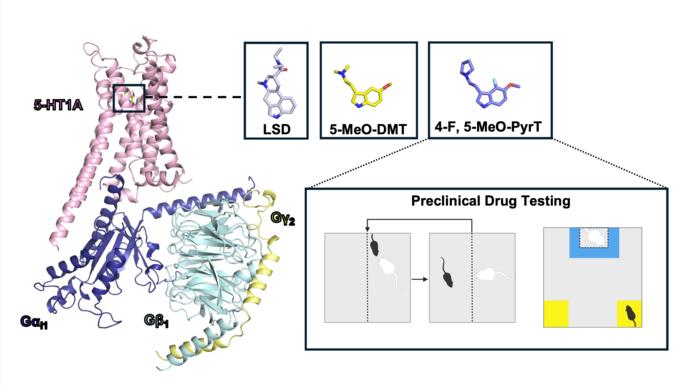Sustained Breastfeeding Boosts Brain and Cognition Development
In a groundbreaking new study published in Pediatric Research, a team of researchers explored the intricate and long-lasting effects of sustained breastfeeding on brain development and cognitive function extending from late childhood into early adolescence. This rigorous investigation adds significant weight to the growing body of evidence suggesting that breastfeeding is not merely a nutritional […]


In a groundbreaking new study published in Pediatric Research, a team of researchers explored the intricate and long-lasting effects of sustained breastfeeding on brain development and cognitive function extending from late childhood into early adolescence. This rigorous investigation adds significant weight to the growing body of evidence suggesting that breastfeeding is not merely a nutritional choice but a profound developmental influence with implications far beyond infancy.
The scientific community has long acknowledged that early-life nutrition plays a critical role in shaping brain architecture, but this latest research elucidates how breastfeeding duration correlates with structural brain differences measurable years after the breastfeeding period has ended. By employing advanced neuroimaging techniques alongside standardized cognitive assessments, the study delivers one of the most comprehensive looks yet into how breastfeeding influences brain maturation trajectories up to the pivotal stage of early adolescence.
The investigation, spearheaded by González, Fernández, Esaian, and colleagues, capitalized on a longitudinal cohort design to track children over several years. This approach provided unique insights into the dynamics between early nutrition and neurodevelopment, controlling for confounding factors such as socioeconomic status, parental education, and perinatal health. Their results revealed that children who experienced sustained breastfeeding exhibited favorable variations in the volume and connectivity of specific brain regions associated with higher-order cognitive functions.
Notably, the hippocampus, a brain structure vital for memory consolidation and spatial navigation, showed enhanced development in participants who were breastfed for extended periods. This finding dovetails with established knowledge about the hippocampus’ sensitivity to early environmental factors and nutrient availability. Coupled with improvements in areas like the prefrontal cortex — crucial for executive functions including planning, attention, and problem-solving — these structural differences could underlie the superior cognitive performances observed in the study sample.
The team employed magnetic resonance imaging (MRI) protocols refined to capture detailed volumetric and microstructural brain information. These cutting-edge imaging modalities allowed them to detect subtle variability in gray and white matter volumes, along with fractional anisotropy metrics indicative of white matter integrity. Such measures provide a window into the brain’s connectivity patterns and functional potential, both of which are increasingly recognized as key determinants of cognitive and behavioral outcomes.
Beyond neuroanatomical observations, the research delved into cognitive testing, applying a battery of neuropsychological assessments tailored to late childhood and early adolescent populations. These included measures of working memory, processing speed, verbal comprehension, and fluid intelligence — domains critically linked to academic achievement and everyday problem solving. Data analysis demonstrated a statistically significant positive correlation between breastfeeding duration and performance in these areas, suggesting that early nutritional factors can have enduring impacts on intellectual development.
What sets this study apart from prior research is its longitudinal scope combined with high-resolution neuroimaging data. By spanning the developmental window from roughly 9 to 13 years of age, the researchers could examine brain and cognitive markers not just during early childhood but as the brain undergoes the complex remodeling characteristic of pre-adolescence. This timing is particularly salient as it encompasses critical periods of synaptic pruning and myelination that sculpt cognitive capacities for adaptive functioning during adolescence and beyond.
Importantly, the study discusses plausible mechanisms by which breast milk could influence neurodevelopment so profoundly. Breast milk contains a unique array of bioactive compounds, including long-chain polyunsaturated fatty acids (such as DHA and ARA), growth factors, hormones, and immune-modulating agents. These substances are known to support neuronal growth, synapse formation, and protection against oxidative stress and inflammation — factors essential for optimal brain maturation during sensitive periods of development.
The authors also underscore the role of breastfeeding as a multifaceted experience encompassing not only nutritional delivery but also the intimate mother-infant bonding and sensory stimulation that accompany feeding. Such social interactions may amplify the neurodevelopmental benefits of breastfeeding by promoting emotional regulation and stress resilience, which in turn can influence cognitive processing efficiency and mental health during later childhood.
Another critical aspect addressed is the potential public health implications of these findings. Given that breastfeeding rates vary widely worldwide and are influenced by sociocultural, economic, and policy factors, the evidence provided by this study reinforces the need for supportive measures to enable sustained breastfeeding practices. Interventions ranging from maternity leave policies to breastfeeding-friendly work environments could have long-term impacts on population-level cognitive outcomes and mental well-being.
The data also raise intriguing questions about the neural plasticity window during which breastfeeding exerts its maximal impact. Understanding whether there are critical thresholds of breastfeeding duration or exclusivity necessary to realize these neurocognitive benefits could inform personalized health recommendations and early interventions, particularly in populations at risk for developmental delays.
Despite its strengths, the study acknowledges several limitations. While the longitudinal design and comprehensive controls are robust, residual confounding cannot be entirely excluded. Furthermore, the observational nature precludes establishing causality definitively, although the convergence of neuroimaging and cognitive data provides compelling associative evidence. Future randomized controlled trials, while challenging ethically, would be invaluable to confirm these associations.
Moreover, the research suggests fertile ground for further exploration into sex differences in response to breastfeeding, as well as examination of genetic factors that may moderate the observed effects on brain development. An interdisciplinary approach incorporating genomics, metabolomics, and neurodevelopmental psychology would enrich the understanding of how early nutrition shapes neurobiology.
In conclusion, the study by González and colleagues offers profound insights into the sustained influence of breastfeeding on the developing brain, extending our appreciation of early-life nutrition beyond immediate physical health to encompass long-term cognitive and structural brain benefits. Their findings provide compelling evidence supporting breastfeeding not only as a foundation for infant survival but as a strategic investment in the future cognitive capital of society.
As neuroscience advances with ever more sophisticated tools, studies like this demonstrate the compelling intersection between biology, environment, and human potential. In a world increasingly focused on optimizing developmental outcomes, the data underscore breastfeeding as a powerful, accessible factor with ripple effects playing out over years — a testament to the enduring imprint of our earliest nutritional environment on brain and mind.
Subject of Research: Sustained breastfeeding’s impact on brain structure and cognitive function from late childhood to early adolescence.
Article Title: Sustained breastfeeding associations with brain structure and cognition from late childhood to early adolescence.
Article References:
González, J.O., Fernández, M.A.R., Esaian, S. et al. Sustained breastfeeding associations with brain structure and cognition from late childhood to early adolescence. Pediatr Res (2025). https://doi.org/10.1038/s41390-025-04086-x
Image Credits: AI Generated
DOI: https://doi.org/10.1038/s41390-025-04086-x
Tags: advanced neuroimaging techniques in researchbrain development in childrenbreastfeeding and neurodevelopmentbreastfeeding duration and cognitioncognitive function and breastfeedingearly-life nutrition impactsimplications of breastfeeding beyond infancylong-term effects of breastfeedinglongitudinal study on breastfeedingpediatric research on nutritionstructural brain differences from breastfeedingsustained breastfeeding benefits
What's Your Reaction?

































